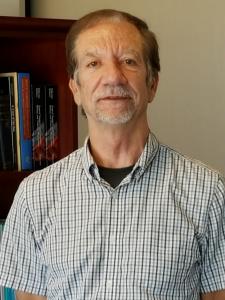Jeffrey Polovina

Voices from the Science Centers
Voices from the Science Centers is an oral history initiative dedicated to documenting the institutional knowledge of fisheries scientists and administrators in the labs of NOAA’s Fisheries Science Centers.
Dr. Jeffrey Polovinawas born in Troy, New York on September 30, 1948. He obtained an undergraduate degree in mathematics at Carnegie Mellon University and later a Ph.D. in statistics from the University of California, Berkley. He began his career in academics teaching at the University of San Diego. He moved to Hawaii and began working at the University of Hawaii Sea Grant office. He later went to work for the National Marine Fisheries Service and has served as the Chief of Ecosystem and Oceanography Division for most of his career. At the time of this interview in 2016, Dr. Polovina is planning his retirement from the center.
Interview contains discussions of: ecosystem modeling, oceanographic studies, methods of research in the Northwestern Hawaiian Islands, the Western Pacific Regional Fishery Management Council, ocean acidification, climate change, pelagic communities in the West, Central, and South Pacific, meteorological data, andthe future of marine research.
This interview with Dr. Jeff Polovina gives a glimpse into his life, his research, and the work done by the Honolulu branch of the National Marine Fisheries center from the late 1970s to the present.
Please Note: The oral histories in this collection are protected by copyright and have been created for educational, research and personal use as described by the Fair Use Doctrine in the U.S. Copyright law. Please reach out Voices@noaa.gov to let us know how these interviews are being used in your research, project, exhibit, etc. The Voices staff can help provide other useful resources related to your inquiry.
The NOAA mission is to understand and predict changes in climate, weather, oceans, and coasts, to share that knowledge and information with others, and to conserve and manage coastal and marine ecosystems and resources. The Voices Oral History Archives offers public access to a wide range of accounts, including historical materials that are products of their particular times, and may contain offensive language or negative stereotypes.
Voices Oral History Archives does not verify the accuracy of materials submitted to us. The opinions expressed in the interviews are those of the interviewee only. The interviews here have been made available to the public only after the interviewer has confirmed that they have obtained consent.
